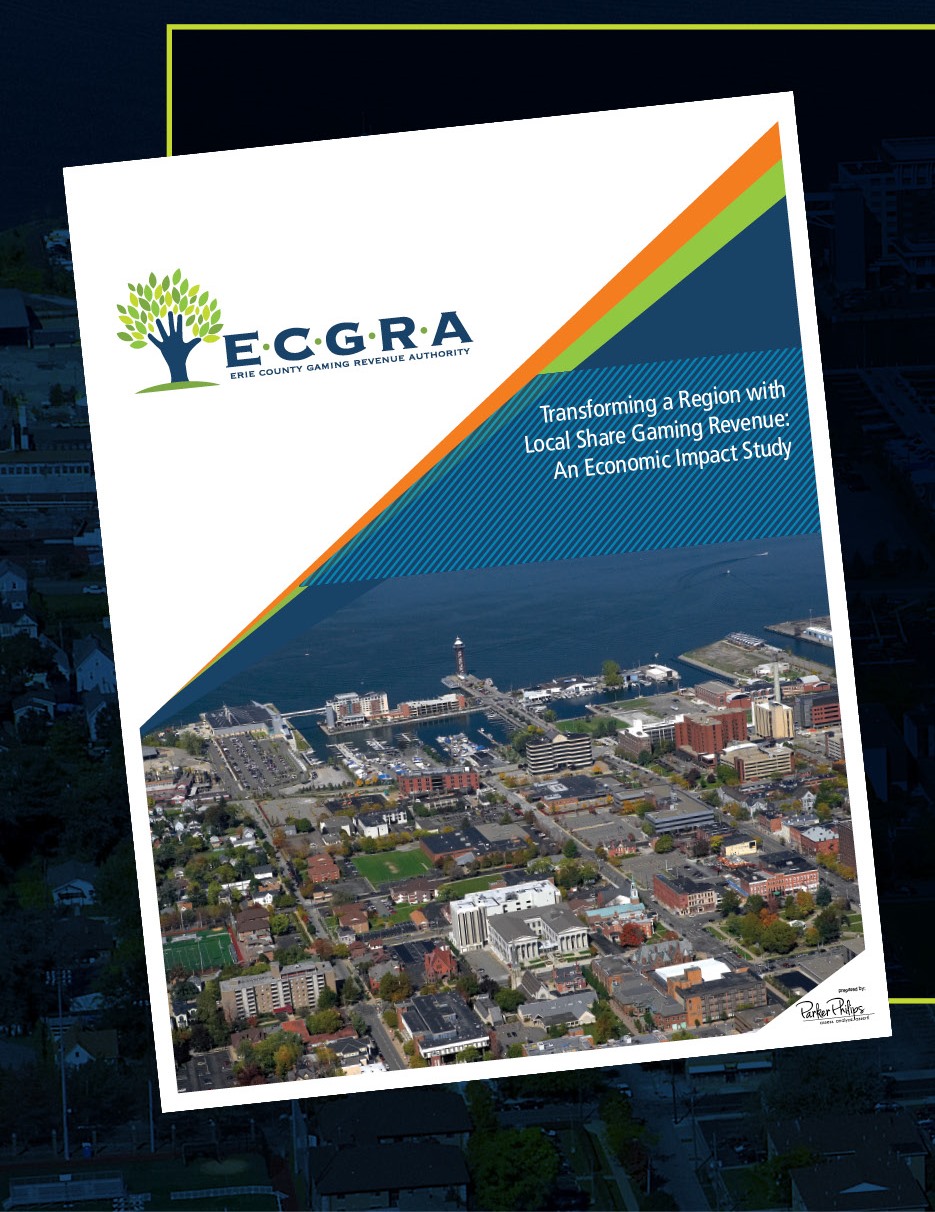 Click Here to Read the Study
Click Here to Read the Study
What is the value of gaming revenue to an inner-city entrepreneur with little collateral who, thanks to innovative lending, can now manufacture her invention?
Or to a child with no access to music education in his public school who can experience the thrill of live orchestra for the first time?
Can Erie County afford to not fund a program that trains at-risk young adults for their first job and connects them with open positions at local employers?
While in some ways, it is impossible to measure the impact of a dollar invested, this economic impact report makes it clear that in Erie County, local share gaming revenue is helping deliver on the legislative promise made when lawmakers enacted Pennsylvania’s Racehorse Development and Gaming Act in 2004.
When the gaming law was drafted, the goals of its authors included generating additional state revenue, offering property tax relief for PA residents, and providing host municipalities with funds to meet needs generated by casino development. The authors also intended for local share gaming revenue to afford economic and community development initiatives that would otherwise be left unfunded. The Erie County Gaming Revenue Authority is doing just that.
Detailed in this report, ECGRA strategically invested more than $38 million in local share gaming revenue from 2009-2016 in education, workforce development, neighborhood and municipal innovation, inner-city renewal, business growth, and community and cultural assets. Our community is in a period of rebirth and local share gaming revenue is inextricably woven into the process.
But now, Erie’s $11 million per year in local share gaming revenue is at risk. If Erie County’s gaming revenue is not made whole or if Erie loses local control of the funds, growth will undoubtedly be stifled. Left intact, ECGRA can continue to serve as a shining example of how to deliver on the state’s promise that casino host communities will not only benefit, but thrive as a result of gaming.
To learn how to help #SaveGamingRevenue, click here.
